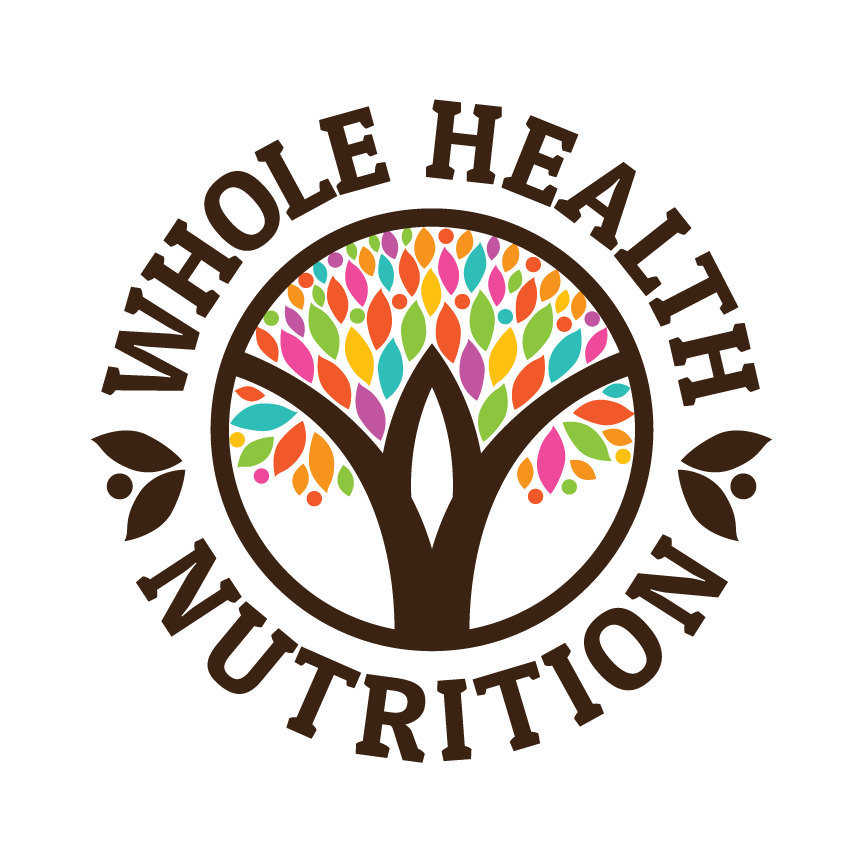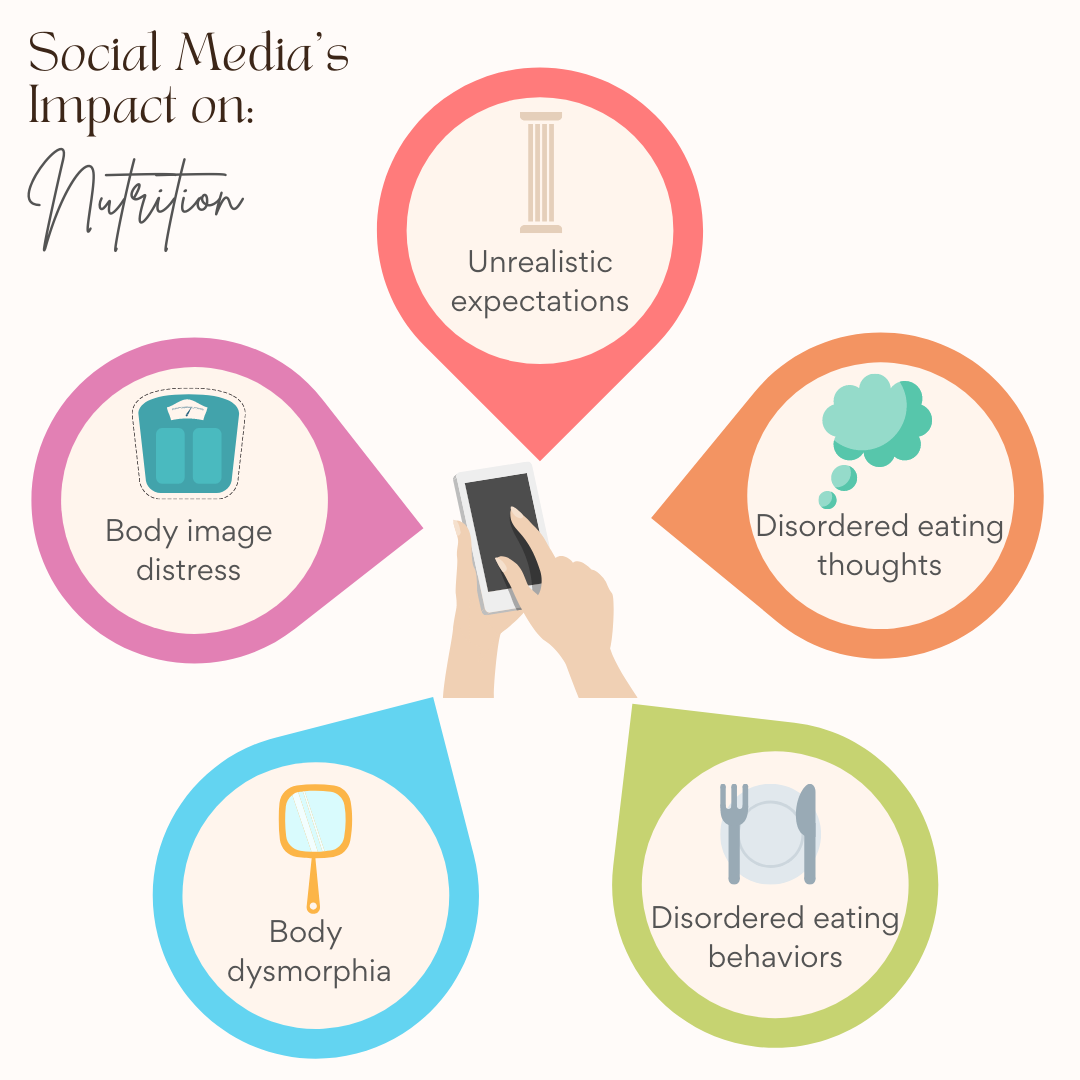Social Media & Nutrition: What You Need To Know
Social media can provide us with an abundance of information, ideas, and perspectives in unique and entertaining ways. When it comes to nutrition, it is not always easy to figure out what is based in science versus what is someone’s personal opinion or what may be for personal gain. Often times social media can negatively impact us, sometimes without us even realizing it. Here we share three ways social media can impact your nutrition, although we recognize there are many more ways than what we discuss here and that not all social media has these effects.
3 Ways Social Media Can Impact Your Nutrition:
1.Social media can set unrealistic expectations
Unrealistic expectations of what to eat, when to eat, where to eat, how much to eat, what a meal “should” look like, what your body “should” look like…the list goes on. All this can lead to #2 and #3 below.
2.Social media can raise disordered eating thoughts and behaviors
Not only by comparing yourself to others (celebrities, friends, coworkers, the friend of a friend of a friend), but through messaging surrounding which diet is the “best” or “most effective” for a whatever topic (weight loss, more energy, better digestion, etc.).
3.Social media can heighten body image distress and body dysmorphia
By comparing yourself to others, seeing images of the thin-ideal, as well as photo shopped bodies.
What You Can Do:
Unfollow accounts that:
1. Make you feel poorly about yourself and your body
2. Promote fad diets or restrictive eating or the thin-ideal
3. Post before and after photos of weight loss or other body changes or photos of the “perfect” body
Follow accounts that:
1. Make you feel comfortable and grateful for your body
2. Promote Health at Every Size (HAES)
3. Take an all-foods-fit approach
Social media can play a positive role in your nutrition and your health but being a savvy user is a must! If you have children who use social media, it is also important to have a conversation about what accounts they follow and how it may be impacting their health and behaviors.
References
Holland G, Tiggemann M. A systematic review of the impact of the use of social networking sites on body image and disordered eating outcomes. Body Image. 2016;17:100-110. doi:10.1016/j.bodyim.2016.02.008
Wilksch, Simon M et al. “The relationship between social media use and disordered eating in young adolescents.” The International journal of eating disorders vol. 53,1 (2020): 96-106. doi:10.1002/eat.23198


